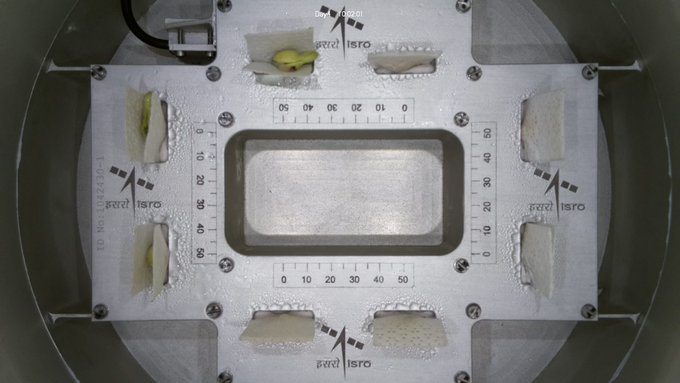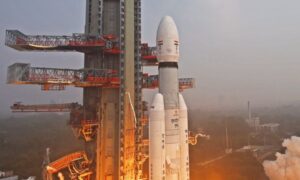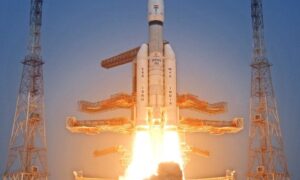
Picture : ISRO/ X : Cowpea seeds sent on the PS4-Orbital Experiment Module (POEM) have germinated in the near zero-gravity and enclosed surroundings of space.
The Indian Space Research Organisation (ISRO) has said the cowpea seeds it had sent to space onboard the PSLV-C60 POEM-4 platform have germinated under microgravity conditions within four days of the launch of the mission.
As per PTI, The space agency sent eight cowpea seeds as part of the Compact Research Module for Orbital Plant Studies (CROPS) experiment conducted by the Vikram Sarabhai Space Centre (VSSC) to study plant growth in microgravity conditions.
“Life sprouts in space! VSSC’s CROPS experiment onboard PSLV-C60 POEM-4 successfully sprouted cowpea seeds in 4 days. Leaves expected soon,” ISRO said in a post on X.
Life sprouts in space! 🌱 VSSC’s CROPS (Compact Research Module for Orbital Plant Studies) experiment onboard PSLV-C60 POEM-4 successfully sprouted cowpea seeds in 4 days. Leaves expected soon. #ISRO #BiologyInSpace pic.twitter.com/QG7LU7LcRR
— ISRO (@isro) January 4, 2025
The PSLV-C60 mission placed two SpaDeX satellites in orbit on the night of December 30. The fourth stage of the rocket carrying the POEM-4 platform has been orbiting the earth with 24 onboard experiments at an altitude of 350 km
The CROPS experiment aims to understand how plants grow in the unique conditions of space, which is essential for future long-duration space missions.
The experiment involves growing eight cowpea seeds in a controlled environment with active thermal regulation, simulating conditions that plants might encounter during extended space travel.
CROPS is envisioned as a multi-phase platform to develop and evolve ISRO’s capabilities for growing and sustaining flora in extraterrestrial environments.
Designed as a fully-automated system, a five to seven-day experiment has been planned to demonstrate seed germination and plant sustenance until reaching the two-leaf stage in a microgravity environment.
The cowpea seeds have been placed in a closed-box environment with active thermal control.
Passive measurements, including camera imaging, oxygen and carbon dioxide concentrations, relative humidity, temperature, and soil moisture monitoring, are available for plant growth and monitoring, the space agency said.
[the_ad id=”55722″]


















